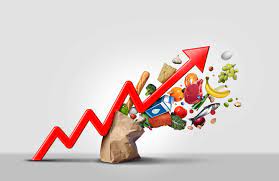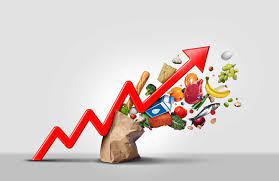
The French economy accelerated in the first quarter, increasing somewhat faster than predicted due to an increase in consumer spending and company investment, according to official figures released on Tuesday.
The eurozone's second-largest economy grew by 0.2% in the first three months of the year, up from 0.1% in the fourth quarter of 2023, according to statistics agency INSEE's quarterly GDP report.
Reuters polled economists, who forecasted an average growth rate of 0.1%, while the Bank of France predicted 0.2% growth and INSEE projected flat growth.
The better-than-expected growth is welcome news for the government, which has been under fire from opposition parties for its handling of the economy after revising its full-year 2024 growth prediction to 1% in February from 1.4% and increasing its budget deficit expectations.
"To all of those who wanted to believe our economy had stalled, the facts are stubborn: French growth is improving," Finance Minister Bruno Le Maire remarked in response to INSEE's GDP data.
Household expenditure growth, which has typically been the primary engine of total French economic activity, increased to 0.4% from 0.2% in the fourth quarter of 2023, as inflation pressures eased.
Meanwhile, corporate investment increased 0.5%, recovering from a 0.8% decline at the end of last year due to rising borrowing rates.
Economists predict activity to go up throughout the course of the year as reduced inflation boosts consumers' spending power and interest rate cuts spur investment.
In the latest indicator of lessening pricing pressures, INSEE reported separately that inflation adopting the EU-harmonised methodology remained constant in April from March at 2.4%, the lowest level since August 2021, shortly before Europe's inflation crisis erupted.
(Source:www.rte.ie)
The eurozone's second-largest economy grew by 0.2% in the first three months of the year, up from 0.1% in the fourth quarter of 2023, according to statistics agency INSEE's quarterly GDP report.
Reuters polled economists, who forecasted an average growth rate of 0.1%, while the Bank of France predicted 0.2% growth and INSEE projected flat growth.
The better-than-expected growth is welcome news for the government, which has been under fire from opposition parties for its handling of the economy after revising its full-year 2024 growth prediction to 1% in February from 1.4% and increasing its budget deficit expectations.
"To all of those who wanted to believe our economy had stalled, the facts are stubborn: French growth is improving," Finance Minister Bruno Le Maire remarked in response to INSEE's GDP data.
Household expenditure growth, which has typically been the primary engine of total French economic activity, increased to 0.4% from 0.2% in the fourth quarter of 2023, as inflation pressures eased.
Meanwhile, corporate investment increased 0.5%, recovering from a 0.8% decline at the end of last year due to rising borrowing rates.
Economists predict activity to go up throughout the course of the year as reduced inflation boosts consumers' spending power and interest rate cuts spur investment.
In the latest indicator of lessening pricing pressures, INSEE reported separately that inflation adopting the EU-harmonised methodology remained constant in April from March at 2.4%, the lowest level since August 2021, shortly before Europe's inflation crisis erupted.
(Source:www.rte.ie)





